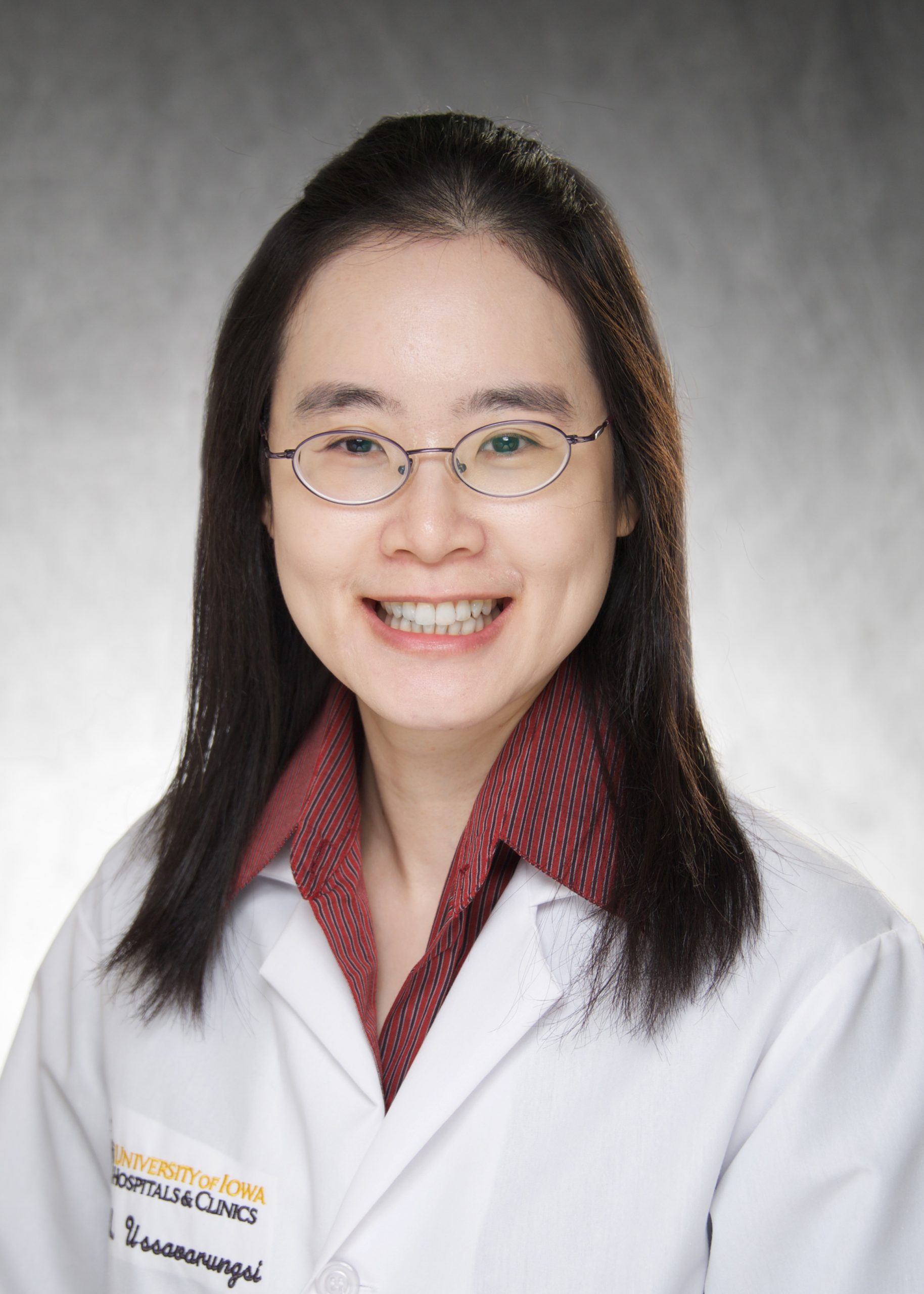Each year during the month of July, we close our financial books for the prior fiscal year (FY) ending in June and we execute our budget plans for the new FY. As you all know, this has been a challenging year financially for the department given our dramatic fall in clinical revenue during the months of March and April as a consequence of the COVID-19 pandemic. Many of our faculty logged extra hours providing care for hospitalized patients and we pivoted to increase telehealth to manage our outpatients. We experienced a dramatic return of our patient volumes in May and June. We worked to increase the efficiency of our clinical operations and many divisions increased their capacity to see more patients during this rebound. Your commitment and hard work in the last two months helped significantly to offset the earlier losses. Despite these efforts all departments in the Carver College of Medicine had to make the decision to ask our faculty to take temporary salary cuts to put us in a stronger position to face the potential economic uncertainties in the year ahead. You will see this tomorrow in your August 1 paycheck. It is hard to get less compensation when you are working harder. However, what has impressed me most about all of you has been your commitment to do whatever is necessary to support all of our missions in the midst of unimaginable challenges and your willingness to sacrifice physically and financially to secure a better future for our department. I respect you deeply for this and saying thank you is insufficient. It is an honor to lead such a talented team and I am even more confident than ever in our future. As we adjust and thrive in our new reality, while increasing our performance and output, you have clearly demonstrated not only that you can walk and chew gum at the same time, but do cartwheels and backflips too!
 Reflection on these end-of-year financial data exemplifies one of multiple examples of our commitment to our community. This commitment shines not only in our efforts for those in our external community, but they also are on display in the way in which we have mobilized to serve each other across all of our missions. We continue to serve our community of learners within our department and, despite the strictures and challenges of physical distancing and PPE, important work gets done. In just one instance, dozens of faculty devoted additional hours adopting video technology to continue our innovative Objective Structured Clinical Evaluations. This nationally recognized approach to evaluating the clinical skills and providing feedback to our incoming intern class is an example of our commitment to ensuring that our trainees begin their careers at Iowa on the correct trajectory, ensuring that they will provide safe and compassionate care to all who come to us, while honing their strong clinical skills. We also upped our game to serve our community of learners at the University of Iowa across the training continuum. Pandemic-driven circumstances motivated the development of a new online lecture series by Dr. Mahi Ashwath, who in her role as the Iowa chapter president of the American College of Cardiology, established a virtual lecture series for our cardiology fellows and even for trainees outside of our walls. It did not take long, as word spread with the aid of the media-savvy Chief Fellow Dr. Shubha Deep Roy, before attendance at these Saturday sessions swelled and now their recorded lectures have been watched thousands of times by viewers from around the world. Even as I have learned to get “used to” our talent and innovation, each time I see the ways in which what we dream up here can have such an immediate global impact, it is hard not to get goose bumps. I hope you are similarly inspired and know that you have the freedom here to experiment and innovate.
Reflection on these end-of-year financial data exemplifies one of multiple examples of our commitment to our community. This commitment shines not only in our efforts for those in our external community, but they also are on display in the way in which we have mobilized to serve each other across all of our missions. We continue to serve our community of learners within our department and, despite the strictures and challenges of physical distancing and PPE, important work gets done. In just one instance, dozens of faculty devoted additional hours adopting video technology to continue our innovative Objective Structured Clinical Evaluations. This nationally recognized approach to evaluating the clinical skills and providing feedback to our incoming intern class is an example of our commitment to ensuring that our trainees begin their careers at Iowa on the correct trajectory, ensuring that they will provide safe and compassionate care to all who come to us, while honing their strong clinical skills. We also upped our game to serve our community of learners at the University of Iowa across the training continuum. Pandemic-driven circumstances motivated the development of a new online lecture series by Dr. Mahi Ashwath, who in her role as the Iowa chapter president of the American College of Cardiology, established a virtual lecture series for our cardiology fellows and even for trainees outside of our walls. It did not take long, as word spread with the aid of the media-savvy Chief Fellow Dr. Shubha Deep Roy, before attendance at these Saturday sessions swelled and now their recorded lectures have been watched thousands of times by viewers from around the world. Even as I have learned to get “used to” our talent and innovation, each time I see the ways in which what we dream up here can have such an immediate global impact, it is hard not to get goose bumps. I hope you are similarly inspired and know that you have the freedom here to experiment and innovate.
Another innovator, Dr. Aaron Scherer, a junior faculty in our division of General Internal Medicine, is about to embark on real service to our national community. He is the recent recipient of two grants, a K01 career development grant from the National Institute on Aging and a U01 in partnership from the Centers for Disease Control and Prevention. Each of these will allow him to continue his study of why people make the choices they do when it comes to their own health care. In the past he has looked at how best to communicate A1c levels to people with type 2 diabetes. Now his K01 will allow him to test messaging for “vaccine-hesitant” individuals above the age of 50 in an effort to increase seasonal flu vaccine uptake. It is not difficult to draw the line of connection between what Dr. Scherer may discover and what our nation may face in the next year or so, depending on the speed with which a successful COVID-19 vaccine emerges, the development of which has strong Iowa participation as well. In order to realize the benefit we hope that a future effective COVID-19 vaccine may have on ending this pandemic, many communities with deep pockets of skepticism will need to be convinced to take it. Dr. Scherer’s insights will undoubtedly contribute importantly in our efforts to communicate and influence members of our community to accept public health measures that will improve the health of us all. In this regard, I endorse the recent statement of the Iowa Medical Society urging our governor to issue a state-wide mask order. This statement aligns with our institutional commitment to work with our community to adopt behaviors that will keep us safe and flatten the curve. Governor Reynolds is now taking opinions on facial coverings as well as “return-to-learn” plans for our public schools. As Iowa citizens and health care workers, I encourage you to call her office to provide your input by calling 515-281-5211 or contacting her online.
Many in our community are hungry for current information about how to keep safe in the midst of this ongoing pandemic. Drs. Krista Johnson and Eli Perencevich were recent guests on an Iowa Public Radio program to offer the health care provider perspective on university plans to teach students safely. This is just one example among many in recent months of our faculty making the sacrifice of their own time to support population health. Whether it is over radio waves or wifi, we have also reached our community of colleagues across the country through participation in lectures and Grand Rounds. For example, Dr. Mike Edmond was a guest presenter at a recent UCSF Department of Medicine session to discuss what we have learned about face shields as protective equipment. Just yesterday, Dr. Peter Densen a distinguished emeritus member of our faculty delivered an informative analysis as the discussant in a CPC on a recent case of Streptococcus pneumoniae meningitis that we saw here at Iowa. Lessons were learned from a disease that used to be common and is now less so since the advent of an effective vaccine nearly two decades ago. The fact that he did so from Maine is a sign of our future in this new age of physical distancing: greater distances will no longer impede us from obtaining and disseminating the information that we need to improve everything that we do. Thank you again for the service you all provide to our community, no matter how broadly or narrowly we define it.

